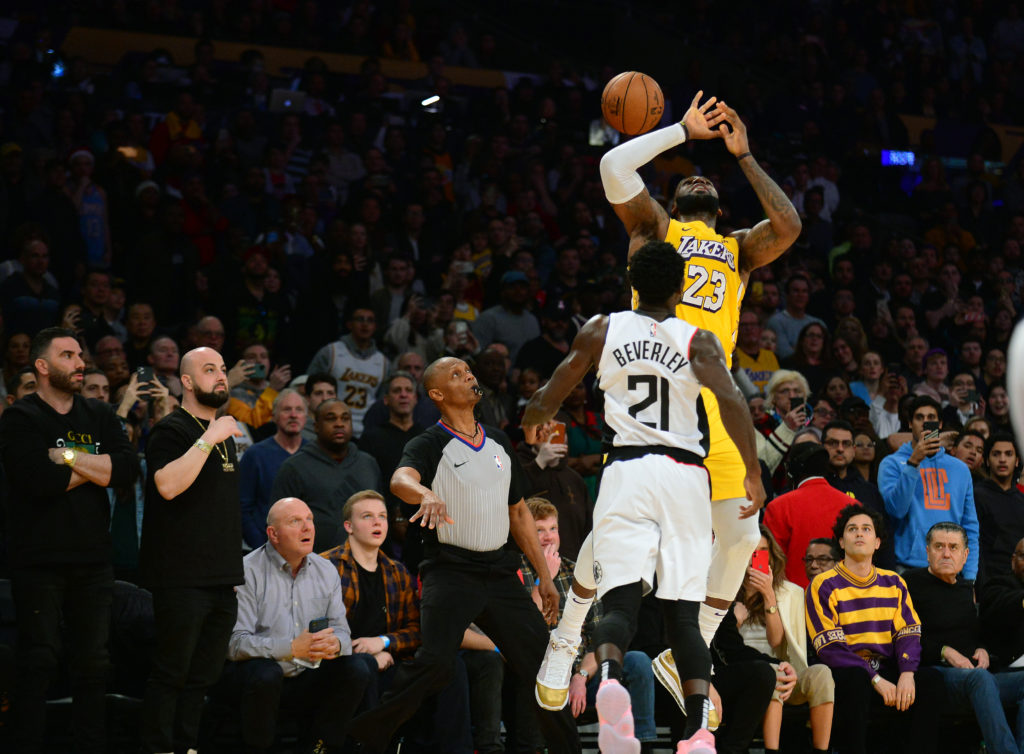
The Lakers lost to the Clippers 111-106 on Christmas Day, their 4th straight defeat overall and their 2nd straight loss (in 2 games) to the Clippers. The loss leaves the Lakers in an interesting position of being the top team in the west record wise, but, from an optics standpoint, clearly behind the Clippers (and, potentially, the Bucks) in the race for the most threatening team to win the championship come June.
There are factors that contributed to each loss that surely matter. Be it the newness and general unfamiliarity of how to come together both strategically and from a lineups perspective on opening night to less than ideal health of their star players in Milwaukee and on Christmas Day, the Lakers haven’t yet played a big game vs. the other top contenders under circumstances that were ideal. While these may sound like excuses, it’s also just the truth of these games and that truth matters.
How much that truth matters, however, is open to interpretation. Because, in reality, ideal circumstances are rare in the NBA — particularly when it comes to the games that matter in May and June. Someone is always banged up or missing entirely, rotations are shortened to exclude players who could be useful in most scenarios (but maybe not the current one), and the hyper-specific gameplans of the playoffs mean the targeting of your flaws in ways that almost always spell doom for teams that don’t quite measure up.
So, the Lakers falling short in the games they’ve played against the Clippers and Bucks means…something. Maybe that something is that they’re really not as good as those other teams. Maybe it means on those single nights enough small things (and a few big ones) went against them to create a tipping point in those specific games, tilting the contest in their opponent’s favor. Maybe it means that we just need a bigger sample.
Depending on where you sit on the pessimist scale, any of those things seem reasonable. Maybe one of them even seems likely.
Me? There was something that stood out to me in those games that goes beyond the context of those moments. That thing? That the other team seemed to have the best player on the floor each night. That, when there was a key play to be made, it wasn’t that the Lakers didn’t have a guy who could make it,1Because, to be fair, both LeBron and AD made plenty of plays in each of the aforementioned games. but that the guy on the other team was the one who took control. That when there was a run to be snuffed out or added to or a crucial sequence that could shift the balance of the game, it was Giannis or Kawhi who took the reigns and not LeBron or AD.
Maybe in a playoff series that changes. Maybe that’s where the context of familiarity or less than ideal health showed up most. Maybe when it’s the same team over the course of two weeks, the Lakers superstar players will have the guile, skill, and ability to seize the moment. Maybe.
Fact is, though, in these measuring stick games, it’s the other team who walked away knowing that it’s their guy who can do it while the Lakers are thinking more that their guys can. Maybe that will end up being a distinction without a difference in the playoffs. But, through 30-some-odd games in the regular season it’s an actual difference.
And it’s a difference that, for me, right now, matters more than the context or circumstances of those specific games. Small sample size and all.